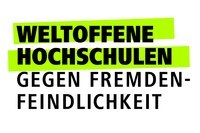Zum Profil

Extended Leichte Sprache
Leichte Sprache (LS; easy-to-read German; cf. “Leichte Sprache – Ein Ratgeber”) is enshrined in law (BITV2.0, 2011). It defines a variety of German characterized by simplified syntactic constructions and a small vocabulary. It provides barrier-free information for a wide spectrum of people with cognitive impairments, learning difficulties and/or a low level of literacy in the German language. The levels of difficulty of a range of syntactic constructions were systematically evaluated with LS readers as part of the recent LeiSA project (see, e.g., Bock, 2019). That study identified a number of constructions that were evaluated as being easy to comprehend but which fell beyond the definition of LS.
The latter observation inspired our work on (Extended) Leichte Sprache determining the grammar that underpins the writing-support system EASYTALK:
- We set up LST, a treebank with 29,170 trees, extracted from a collection of 245 LS documents from a variety of sources freely available on the internet, spanning the years 2018–2021. To build a representative data set of LS texts of sufficient variety, we selected a broad spectrum of institutions, authors, and validators: according to the credits, at least 153 authors, 116 validators, and 53 institutions were involved in the creation of these texts. We deploy the dependency parser PARZU (Sennrich et al., 2013) to obtain the syntactic structures. (The parsing accuracy with a random sample of 100 sentences is 96%—comparable to results for prose text (Tritscher, 2016); currently, we correct all errors in order to launch the treebank for public use). In search queries into LST, the sub-corpus, comprising only those texts that were proof-read by LS readers, can be distinguished from the one, including texts without explicitly mentioned LS-reader participation. The treebank is available upon request to Karin Harbusch;
- We define Extended Leichte Sprache based on a comparative treebank study into spoken and written German, and LST;
- We developped and evaluated the system EASYTALK for fast and correct writing in Extended Leichte Sprache (Easy-to-read German):
- Enabling fast and correct typing in ‘Leichte Sprache’ (Easy Language).
Ina Steinmetz and Karin Harbusch.
Proceedings of the The Fourth Widening Natural Language Processing Workshop, Seattle, USA, July, 2020, DOI: 10.18653/v1/2020.winlp-1.17. - Easytalk: A Digital Writer’s Workshop for Leichte Sprache (Easy-To-Read German).
Ina Steinmetz and Karin Harbusch.
The European Conference of Education 2021 (ECE2021), Online from UCL, Institute of Education, London, UK, July, 2021, https://doi.org/10.22492/issn.2188-1162.2021.32. - EasyTalk: An assistive text-writing system for Leichte Sprache (Easy-to-read German).
Ina Steinmetz and Karin Harbusch.
Communication Matters International AAC Conference, Leeds, UK, September, 2021. - Easytalk: A Digital Writer’s Workshop for Leichte Sprache (Easy-To-Read German).
Ina Steinmetz and Karin Harbusch.
The European Conference of Education 2021 (ECE2021), Online from UCL, Institute of Education, London, UK, July, 2021, https://doi.org/10.22492/issn.2188-1162.2021.32. - A text-writing system for Easy-to-Read German evaluated with low-literate users with cognitive impairment.
Ina Steinmetz and Karin Harbusch.
Proceedings of the First Workshop on Intelligent and Interactive Writing Assistants (In2Writing 2022), Dublin, Ireland, May, 2022, pp. 27-38, 10.18653/v1/2022.in2writing-1.4. - See EASYTALK at work.
- Enabling fast and correct typing in ‘Leichte Sprache’ (Easy Language).
Förderungen & Partnerschaften







